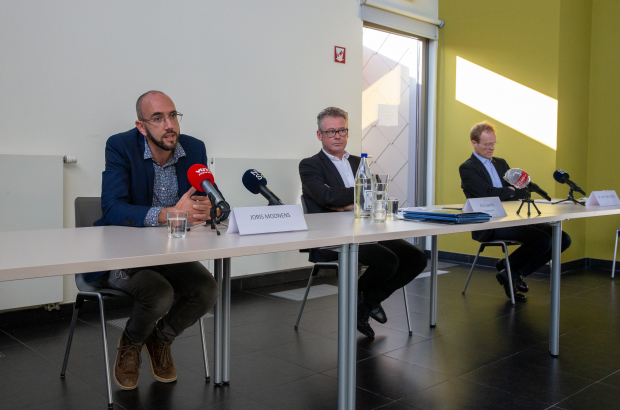- Daily & Weekly newsletters
- Buy & download The Bulletin
- Comment on our articles
Flemish Healthcare Agency allays fears after Belgian couple die of malaria
A married couple from Kampenhout, Flemish Brabant, who died of malaria at the end of September were probably infected by a mosquito that arrived in Belgium from Africa via the airport at Zaventem or the air base at nearby Melsbroek, experts said.
The couple had not travelled or been in contact with people who had transited through a country where the virus is circulating, raising concerns among locals that further infections could take place. Health officials moved to quell such fears by issuing a statement to the press on Saturday.
“There is no danger to the people of Kampenhout,” Joris Moonens, spokesman for the Flemish Health Care Agency, told the news conference at the Kampenhout town hall. “The deceased couple were reportedly stung in mid-September. If other people were bitten by the same mosquito at the same time, they would have already developed symptoms of the disease. This is a very rare case, an unfortunate coincidence.”
“The people of Kampenhout should not worry,” echoed Kampenhout mayor Kris Leaerts.
The case is currently being investigated by the Flemish healthcare agency and the Institute for Tropical Medicine in Antwerp.
Malaria cases occur in Belgium, but infections are very rare. According to the Institute for Tropical Medicine, 275 cases were recorded in 2015, and 351 in 2018, all of them people returning from visiting the areas affected. Only one other case of malaria virus contamination has been recorded on Belgian soil and that was in 2014. This is the first time people have died of malaria after contamination in Belgium.
According to the Institute of Tropical Medicine, it is almost impossible that other people have contracted the disease, with the mosquito causing the infection most likely dead and malaria not transmitting between humans.
“The virus is only transmitted through an Anopheles mosquito that has bitten an already infected person," said Dr Wim Van Bortel of the Institute of Tropical Medicine, adding that the particularly warm temperatures in September allowed the mosquito to survive in Belgium.
Researchers from the Institute will travel to Kampenhout in the coming weeks to analyse the mosquito species present in the commune, as well as to test the larvae and try to detect the possible presence of Anopheles mosquitoes that can potentially carry the malaria virus.
"This case also shows the importance of monitoring the importation of exotic mosquitoes into our country," Van Bortel said, adding that there has been no general increase in the number of exotic mosquitoes around airports and that residents should not be concerned.
Malaria is caused by the parasite plasmodium, which lives on the female Anopheles mosquito. The parasite makes its way to the liver and from there into the bloodstream, where it invades and destroys red blood cells, leading to the typical fever in the early stages. The disease can be fatal if smaller blood vessels become blocked, particularly those in the brain.
Malaria continues to be widespread in the world, with the World Health Organisation estimating 228 million cases worldwide in 2018, leading to 405,000 fatalities, mainly in Africa.



















